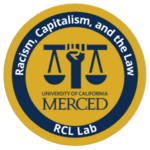Abstract
In 2006, the Peruvian government passed a law that made racial discrimination a crime punishable by incarceration. This law, part of a multicultural reform in Peru, can be seen as an effective recognition of the reality of racism in Peruvian society. Such recognition, however, contrasts with official depictions of Peru as a country without racism, and of Peruvians as people who deny the existence of racism in their society. Based on semi-structured interviews conducted in Lima, this note explores everyday discourses on this issue. The findings show that Limeños recognize racism as a societal problem, but they adhere to a restrictive definition of racism and use rhetorical strategies that allow them to portray themselves as not racist. Their expressions of distaste for people of color demonstrate that racism persists in interpersonal discourses because of deeply embedded ideas about the inferiority of blacks and Indians.

